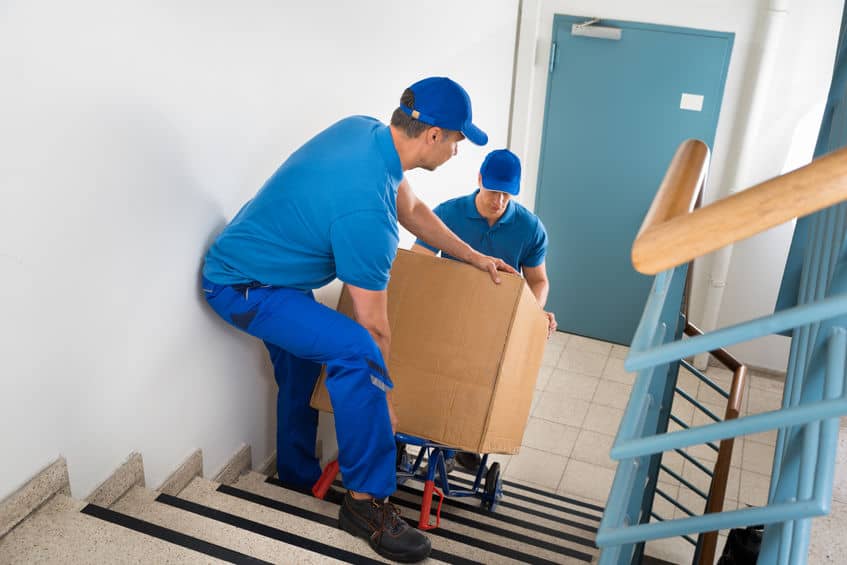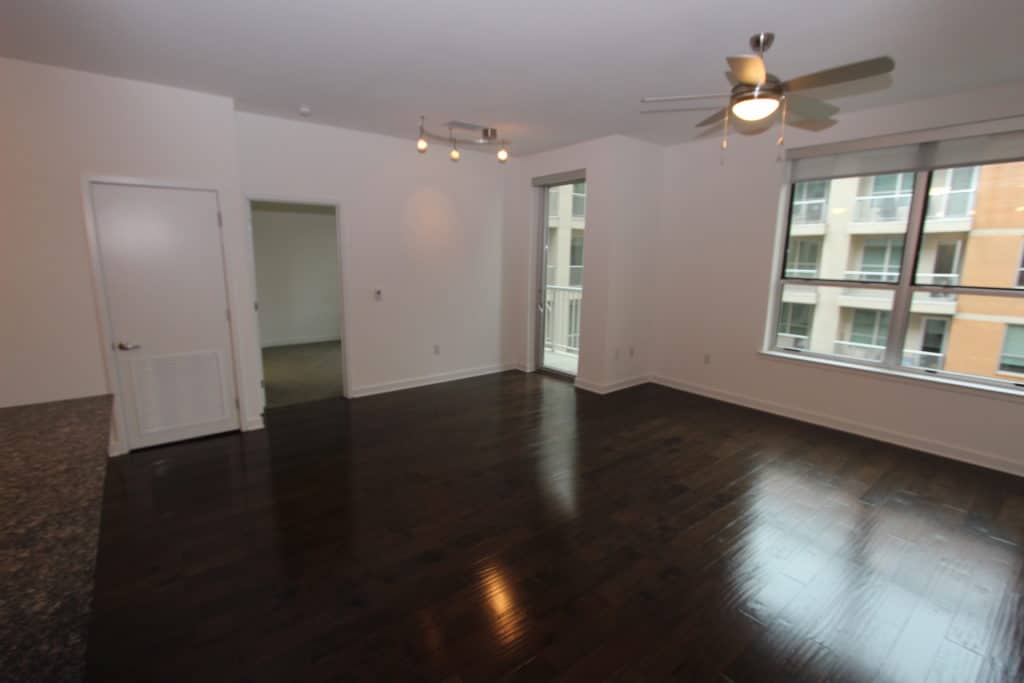The stakes are higher when moving out of state.
It is not same as moving locally.
A few reasons why long distance interstate moves are not the same as a local move:
- You will not have your items in an easy plain line of sight
- it could be several days or weeks until you see them again.
- federal motor regulations dictate interstate moves
- industry has different terminology and concepts
Before you hire an out of state mover, it is prudent to do your research, including making sure you understand if mover is licensed for interstate moves, well-rated, is a carrier or simply a broker, is giving you a binding estimate or non-binding estimate, and if it’s a direct or indirect move.
Here are twelve specific and direct questions that will help pave the way to a trouble-free interstate move.
1. Is the Mover Licensed and Well-Rated?
Check prospective movers ratings with the Better Business Bureau (BBB) and other local consumer agencies. You’ll find the BBB grades companies just like your school term papers A+ through F. You can check out the registered interstate moving company’s rating and complaints filed by visiting the U.S. Department of Transportation Federal Motor Carrier Safety Administration (FMCSA) website (https://nccdb.fmcsa.dot.gov/nccdb/home.aspx).
You will need the moving company’s US DOT # and Motor Carrier (MC #). From the website you can also check to see if they are registered to do interstate moves and see how many consumers have filed complaints, (complaints are viewable by category). When looking at the number of complaints, consider the size of the company’s fleet. The larger the fleet is, the more moves they likely will make, increasing the chance that something will go wrong.
Check out other online review sites.
Talk to any friends or family who may have recently moved out of state, and ask about their experience.
2. Are You a Carrier or a Broker?
A carrier moves your stuff from your current home state to your destination. The broker sells your moving job to companies that do the work.
There are some risks in using a broker. Instead of coming to your home to give you an estimate, many try to provide it remotely. You will have to estimate how much you have to move. Given that your belongings are likely not boxed up and ready to go, that’s difficult to do. So you can end up with a cost estimate that may not even be in the ballpark. Also, if the broker is unable to sell the job, you may not have a moving company to help you on your move date. Plus, since the broker works with multiple moving companies, you likely don’t have the opportunity to research the mover that will do the work.
If you work directly with a mover, you can find out how others rate the company. On the downside, you’ll often find their routes are more limited than those of brokers, and if you’re moving at a busy time of year, they are more likely to be booked up.
3. Will It Be a Direct Move?
Sometimes movers take your belongings directly from your current residence to your new home. Other times, your stuff may be unloaded from, for example, truck A onto truck B for the final stretch of the move. The more movers interact with your furniture, the higher the probability something will be lost or damaged. If you are moving from a state that is far away, the mover will almost always maximize their profits by picking up other families household goods along the way. You should ask if your belongings will stay on the same truck or they will be switched to another truck(s).
4. What Does the Price Include?

There are many components to a move, it’s important to find out what your quote does and does not include. Get your quotes in writing.
Are they providing packing supplies and labor for packing? Does the quote include disassembling and reassembling furniture, loading and unloading the truck?
Also, there should be coverage for the value of your possessions. Ask whether the quote is for what is called “full-value” or “released-value protection”. This is very important. Released value protection, offers protection for up to 60 cents per pound (for example if the mover damaged your TV and the TV was worth $1,000, you would receive no more than $30 – assuming your TV weighed 50 lbs; 50 lbs x $.60 = $30). Full-Value Protection represents that your mover is liable for the replacement value of your goods if they are lost or damaged. However, there are usually some caveats, for instance, for highly valuable items and whether damaged items can be repaired. Full value protection will generally increase the price of the move, but of course, offers much more comprehensive coverage.
Keep in mind that if you will be shipping your vehicle or car, it is usually a separate process handled by a different company or broker that specializes in car shipping. You want to consider, among other things, if the company shipping your car is a broker or actually a carrier, the reputation of the company, insurance, and more.
5. Is This a Binding or Non-Binding Estimate?
A “binding estimate” guarantees the maximum amount you will have to pay as long as you stick with the services outlined in the contract and don’t add additional items (note: there are exceptions such as if there are unforeseen circumstances, but the causes are generally defined and limits are capped).
With a “non-binding estimate”, it is an estimate, and the licensed mover uses some assumptions to calculate an expected cost. However, the company will tally the final bill based on the actual services performed and the weight of the items moved. Under a non-binding estimate, a mover can currently require you to pay 110 percent of the original estimate at the time of delivery, plus any remaining charges after 30 days from delivery.
6. What Is the Delivery Date Spread?
It would be easier to plan if you knew your move’s delivery date. Unfortunately, for out-of-state moves, especially far away ones, it usually does not work that way.

Often there’s a window of time when your movers might arrive, and that spread can be many days. As a rule of thumb, the further the distance, the more extensive the range of possible delivery dates. Also, the smaller your shipping load (i.e. the less stuff you have), also usually means a longer range of delivery dates.
So you need to ask for the delivery date spread and find out whether it’s guaranteed and what happens if your delivery falls outside the stated dates.
One option to consider: some companies might offer containers or crates which sometimes can provide a more narrow delivery date spread, but it usually has size limits and increases the cost. This is not an official term but many movers will know what you mean if you ask. Inquire about the positives and negatives of this solution.
7. What is the pick-up day and is it guaranteed?
Find out if you can get a guaranteed pick-up day. Most movers will not offer a guaranteed delivery date but a guaranteed pick-up day will help a lot so that you’re not waiting around.
8. Is there extra insurance you can purchase?
You can always ask if the company offers extra insurance to purchase. Research if your current homeowner or renter’s insurance will offer any additional protection.
9. Do you have a dispute settlement program?
Although you hope you never need it, ask if the mover has a dispute settlement program and what the process looks like.
10. How will I reach you during the move?

Some moving companies may give you day-by-day text updates or offer tracking services, whereas others may say they will call you the day before pick up. Ask in advance how you will communicate with the company and how many days notice you can expect to receive.
11. Can you meet my building’s requirements?
If you are moving into an apartment or condo, your building may require reserving an elevator (which you will have to do), or the mover may have to provide a Certificate of Insurance. You can ask about your building first and then discuss it with the mover. Ask your building and mover what other requirements there may be.
12. What types of payment do you accept?
Ask if they take credit card, check, or cashier’s check. You shouldn’t assume the company will take a credit card. Also, find out the terms of payment (i.e. what is due upfront and what is due when they arrive).
It’s often a good idea to get quotes from at least 3 reputable moving companies and compare. Among other items, make sure the company is reputable, licensed, and has the proper level of insurance. Hopefully, this article gives you a nice start but you should always do your own research, including on the FMCSA website, and find the right fit for you and your situation.





